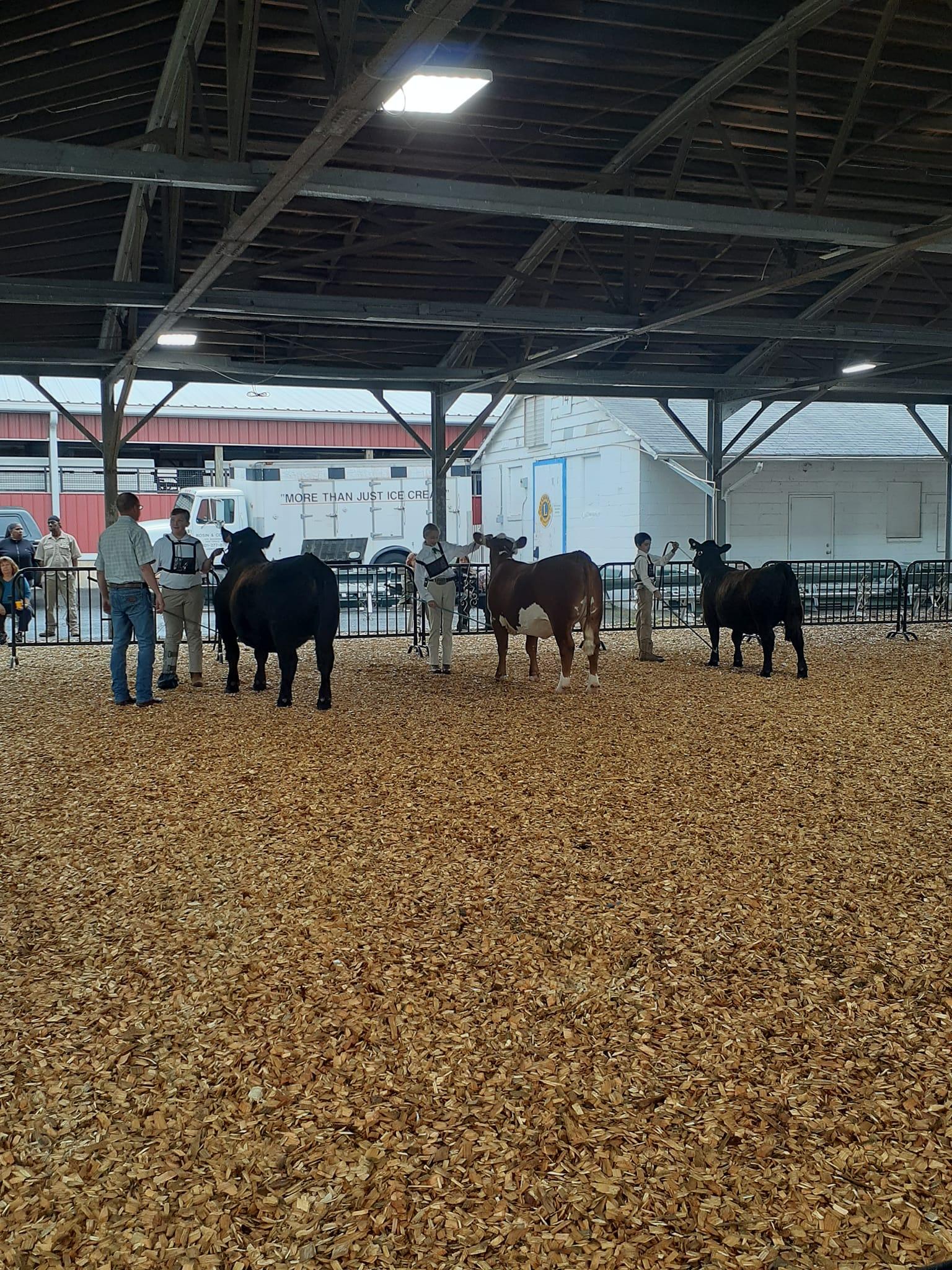Updated: April 5, 2024
Public Speaking-Making a Great Speech (FS-1135)
This factsheet highlights that public speaking is one of the most common fears among adults in the United States. However, it is also considered one of the most valuable life skills that young people can acquire through their involvement in 4-H. The Maryland 4-H Public Speaking contest is an excellent opportunity for youth to hone their public speaking skills. This publication contains valuable information about the contest and includes worksheets that can assist youth in the development of their speeches. Authors: Rachel Bayer, Sara Arnold, Sheryl Bennett, and Chris Rein; Title: Public Speaking-Making a Great Speech (FS-1135).
Updated: August 30, 2023
University of Maryland Extension (UME) 4-H Needs Assessment Tool Kit Overview (FS-2022-0636)
Extension educators are tasked with providing programs that meet the needs of their respective communities. One way to measure the current community assets and opportunities for growth is through needs assessments. A needs assessment is a tool that measures the interests and identifies gaps in current program offerings. It can also be used to check the status of ongoing programming in a community. The 4-H Needs Assessment Tool Kit is an extension manual that gives insight into using the materials and offers templates that can be adapted for various stakeholder groups. The documents contained in the Tool Kit have been tested in rural, urban, and suburban communities. Authors: Vernelle Mitchell-Hawkins, Ashley Travis, and Rachael Bayer; Title: University of Maryland Extension (UME) 4-H Needs Assessment Tool Kit Overview (FS-2022-0636)
Updated: August 16, 2023
Incorporating the Essential Elements of 4-H into Online Environments through Virtual Activity Clubs (FS-1173)
A 4-H virtual activity club (VAC) meets over the internet to provide a focused learning experience on a single topic for a short period of time. During the COVID-19 pandemic that started in March 2020, 4-H programming was forced to adapt quickly to a virtual environment. Activity clubs are one of Maryland 4-H’s established delivery modes. Offering them online was a natural fit for filling the void created by cancelled 4-H club meetings, summer camps, and other out-of-school-time activities due to the pandemic. Author: Jessica Mellon; Incorporating the Essential Elements of 4-H into Online Environments through Virtual Activity Clubs (FS-1173)
Updated: May 8, 2023
Empowering Volunteers to Incorporate Workforce Readiness into 4-H Programs (FS-2022-0628)
4-H volunteers play a key role in helping youth with college and workforce preparation because they regularly create educational experiences that foster the development of life skills such as time management, responsibility, leadership, and teamwork. Authors: Ashley Travis, Jessica Mellon, Vernelle Mitchell-Hawkins, Chris Rein, Beckey Ridgeway, Mark DeMorra, and Thomas Hutson; Title: Empowering Volunteers to Incorporate Workforce Readiness into 4-H Programs (FS-2022-0628)
Updated: May 31, 2022
Educational Planning Tools and Methods for Extension Educators (FS-1195)
Extension Educators have been delivering research-based content to the community for over a century. These informal learning experiences for youth and adults are designed to be relevant, timely and age appropriate. Educators are considered experts in their respective content area and the community depends on their knowledge. Preparation for learning experiences is important for extension educators. The time and care that is taken align to University goals and meet intended learning objectives can make a difference in the amount of skills attained by learners. The tools presented in this document are designed to help the extension educator make written plans for single workshops, multi-session workshops, seminars, and short courses. The tools are intended to be easy to use across program areas and encourages efficient teaching. Author: Vernelle Mitchell Hawkins; Title: Planning Tools and Methods for Extension Educators (FS-1195).
Updated: May 19, 2022
Strategies for 4-H Youth Development Educators on Outreach Programming (FS-927)
There are a number of key strategies to successfully expand and sustain 4-H outreach programs. These strategies include (1) assessment and planning, (2) quality youth development training for facilitators, (3) participant recruitment, (4) quality program delivery, (5) sustainable partnerships, and (6) evaluation. This fact sheet will provide an overview of these six strategies and resources to begin your 4-H program outreach. Author: Dr. Nia Imani Fileds;Title: Strategies for 4-H Youth Development Educators on Outreach Programming (FS-927)
Updated: May 19, 2022
Developing Extension Lesson Plans: Using a 4-H Youth Development Lesson Plan Template to Strengthen the Rigor and Quality of Research-based 4-H Programs (FS-1060)
4-H Youth Development educators use a variety of program education models to engage youth and volunteers in experiential learning. 4-H educators often develop and/or adapt research-based lessons and curricula to facilitate youth development programs. The use of a standardized lesson template can enhance consistency and increase efficiency in delivering quality programs. Additionally, a peer review process can be used to increase the rigor and research-based content of University of Maryland Extension (UME) developed programs. This resource is a support piece to assist educators through utilizing the UME lesson plan template and submitting their resource through the peer review process. Author: Dr. Nia Imani Fields; Title: Developing Extension Lesson Plans: Using a 4-H Youth Development Lesson Plan Template to Strengthen the Rigor and Quality of Research-based 4-H Programs (FS-1060)
Updated: April 28, 2021
Planning and Facilitating a 4-H Public Speaking Workshop
Maryland 4-H Youth Development programs incorporate experiential learning opportunities that promote development of life skills including communication/public speaking. This fact sheet provides a framework for planning and facilitating a public speaking workshop and includes suggested learning activities that can be adapted for various youth audiences.
Updated: April 20, 2021
Speaking of Appreciation: Ways to Incorporate Informal Recognition into Your Program
Volunteer recognition is one of the seven steps to volunteer administration according to the ISOTURE Model. It is often an overlooked aspect of volunteer development, but can play an important role in creating a sense of belonging in volunteers and a culture of appreciation in your program. This factsheet using The 5 Languages of Appreciation in the Work Place to identify ways to help professionals and others show appreciation to volunteers.
